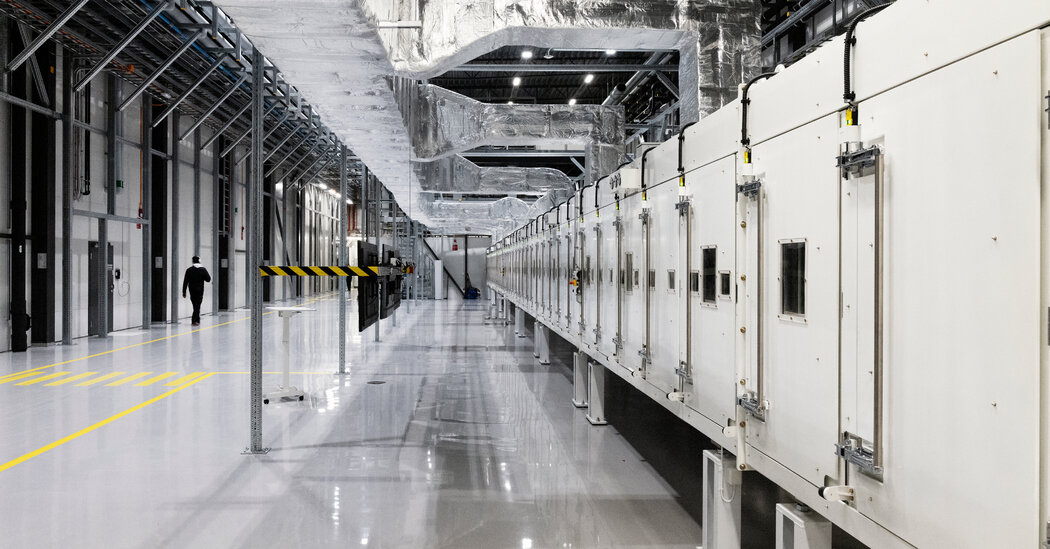The Swedish battery manufacturer said it would eliminate jobs and seek partnerships as it grapples with competition from China.
Northvolt, a Swedish battery manufacturer, said it would cut jobs, seek partnerships and merge some operations as it tries to streamline its business in the face of declining demand for electric vehicles in Europe.
The restructuring will “regrettably include some difficult decisions on the size of our work force,” Northvolt said in a statement on Monday, without specifying how many jobs would be affected.
The company, which has been seen as Europe’s strongest competitor to Chinese battery manufacturers, also plans to pause production of cathode materials — one of the basic building blocks of a battery — at a factory in Skelleftea, Sweden, and focus instead on the company’s gigafactory in the same location, it said. Northvolt also said it remained committed to planned factories in Germany and Canada.
“We are having to take some tough actions for the purpose of securing the foundations of Northvolt’s operations to improve our financial stability and strengthen our operational performance,” Peter Carlsson, a founder and the chief executive of the company, said in the statement.
Carmakers across Europe are struggling with slowing demand for electric vehicles and competition from China, which has begun flooding the market with affordable electric vehicles. Last week, Volkswagen, a leading shareholder in Northvolt, said it was considering closing factories in Germany for the first time in its 87-year history as it seeks to regain competitiveness in the sluggish market.
China also dominates in the production of materials, like graphite and processed lithium, that are essential to the flow of electricity within a battery. Northvolt has invested tens of billions of dollars in lithium-ion battery production, but it has struggled to compete because of a combination of state subsidies and economies of scale that have benefited its rivals in China.
The company has faced a string of challenges this year, including accidents at a plant in Sweden and the loss of a contract with BMW worth two billion euros, or $2.15 billion, in June. The company reported a $1.2 billion annual loss in 2023, widening from a $285 million loss in the previous year.
Demand for battery-powered vehicles in Europe stagnated this year, growing only 1.3 percent in the first half of 2024, down from 14.6 percent in the previous year, according to the European Union.
“E.U. battery production capacities are running at 20 to 30 percent lower than in China,” Thierry Breton, the European Union’s internal market commissioner, told a group of industry leaders at a meeting in Brussels on Monday.
Jenny Gross contributed reporting from Brussels.
